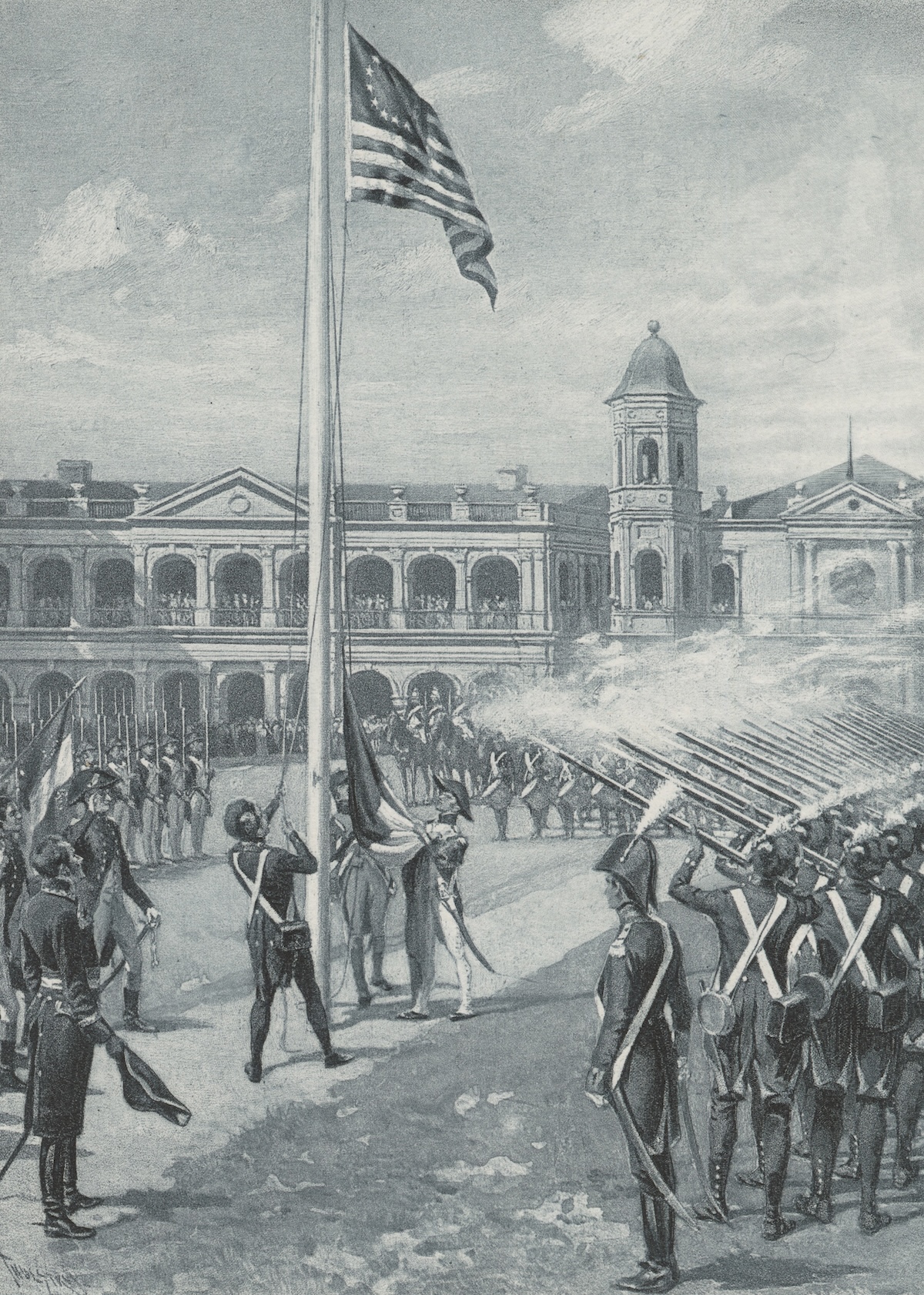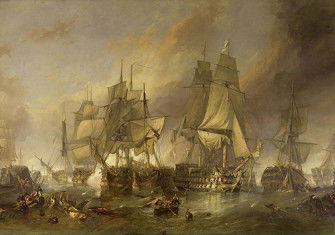The Louisiana Purchase, 1803
At the dawn of the 19th century, Napoleon Bonaparte liquidated the French empire in America, selling the vast Bourbon heritage along the banks of the Mississippi to the United States. Why?

On May 2nd, 1803, two American diplomats signed a treaty in Paris in accordance with which the United States acquired 900,000 square miles of territory. Out of this enormous tract, known as the Louisiana Purchase, were carved Louisiana itself, Missouri, Arkansas, Iowa, Minnesota, North and South Dakota, Nebraska, Oklahoma, and the greater part of Kansas, Colorado, Wyoming and Montana. The price of this block of real estate, plus the assumption of certain claims of American citizens against France, came to fifteen million dollars. The interest payments incidental to the final settlement raised the total eventually to $27,267,622, or about four cents an acre. The diplomats engaged in these negotiations, Robert R. Livingston and James Monroe for the United States, Talleyrand and Barbé-Marbois for France, had been haggling over the transfer of New Orleans and the delta of the Mississippi from France to the United States for over a year. Not one of them guessed, when the negotiations began, that Napoleon Bonaparte, at that time First Consul of France but actually dictator, would suddenly decide to liquidate the French empire.







